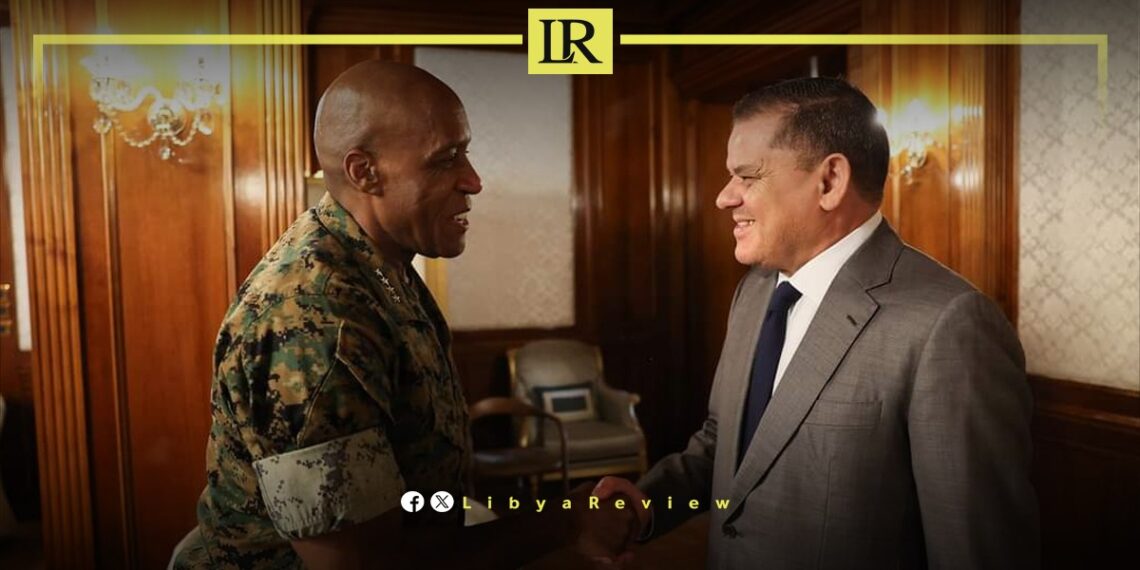On Thursday, Libyan Prime Minister Abdul Hamid Dbaiba, who also holds the position of interim Minister of Defense, met with General Michael Langley, Commander of the United States Africa Command (AFRICOM), and Jeremy Berndt, the Chargé d’Affaires at the U.S. Embassy in Libya.
The meeting, which was also attended by senior Libyan military officials, focused on addressing the growing security threats facing Libya and the broader region.
General Langley conveyed the United States’ deep concerns over the deteriorating security situation in Libya, emphasizing the instability in neighboring countries and the Sahel region. The presence of armed groups with unclear agendas has further complicated the region’s security landscape. Langley highlighted the urgent need for a unified and robust Libyan military response to these emerging threats.
Prime Minister Dbaiba welcomed the opportunity to strengthen cooperation with the United States, stressing the importance of a coordinated effort to secure Libya’s southern borders and neutralize suspicious activities. He reiterated Libya’s commitment to working closely with both domestic and international partners to maintain stability and prevent further unrest. Both sides agreed that enhancing this collaboration is essential in the ongoing fight against terrorism in the region.
The discussion also covered AFRICOM’s proposed training programs for the Libyan Armed Forces, aiming to enhance their operational capabilities. These initiatives reflect a continued commitment to building a more effective and unified military force in Libya, which has struggled with internal divisions and a lack of cohesive leadership.
Since the fall of Muammar Gaddafi in 2011, Libya has been plagued by conflict and political fragmentation. Dbaiba, who was appointed as part of a UN-backed peace process in 2021, has faced significant challenges in uniting the country’s rival factions and restoring stability. His administration has been criticised for its inefficiency and alleged corruption, raising concerns about its ability to implement crucial security measures effectively.
The international community, particularly the United States, views Libya as a key player in maintaining regional security and preventing the spread of extremism. AFRICOM’s engagement with Libyan forces underscores the strategic importance of the country in counterterrorism efforts across North Africa and the Sahel.


